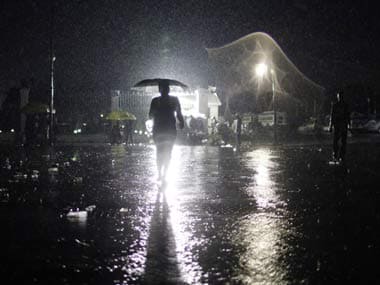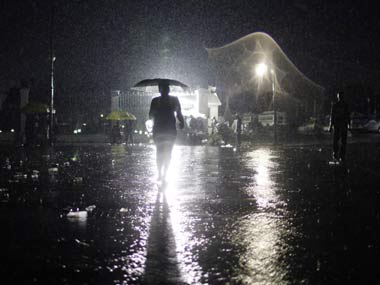On 28th August 2012 two 16-year-old girls entered their idols’ tour bus, excited about taking photographs with the pagode band from Bahia, Brazil. When they exited the vehicle two hours later, they were hysterical, their clothes bloody, torn and stained with semen. The girls pressed charges of rape against eight members of the band New Hit and their security guard, also a military policeman. The nine men spent 38 days in prison and were released on bail for a whole year until their court date this September – their counsel had appealed to postpone the hearing. Meanwhile, they continued touring and working normally. The girls received death threats and hostilities from the band’s fans, and had to be put under a governmental protection program that changed their names, state, schools and ensured that they were a good distance from friends and family. A DNA test confirmed later that eight of the suspects had sexual relations with the minors. Some of them even admitted to having sex with the girls – but they claim it was consensual. [caption id=“attachment_1122773” align=“alignleft” width=“380”]
 Representational image. Reuters[/caption] In stark contrast to the huge debates and protests sparked off by recent sexual assault cases in India, the Brazilian mainstream media has barely covered the case or placed any emphasis on the seriousness of the accusations against the band. Danger for women in Brazil is very real. A recent study, Dossiê da Mulher (Women’s Dossier), has revealed that five thousand women were raped in Rio de Janeiro in 2012 – an increase of 23% from 2011. It also divulges that 58,051 women were victims of violent assault, which amounts to seven aggressions in an hour. Another survey called Chega de Fiu Fiu (No More Wolf Whistling) revealed that of the eight thousand women surveyed, 99% have had humiliating experiences on the street. Even more worrying is that 51% of women are scared when they walk on the street and that because of this, 90% of them have changed outfits for fear of being harassed. Feminist groups have also condemned the justice system and Brazilian society for perpetuating a sexist culture where it’s considered acceptable for men to rape. Situations women deal with every day – sexual harassment, abuse, rape, misogyny, sexism and objectification – are finally being discussed at some feminist protests. Feminist from the Brazilian branch of the World March of Women Maíra Guedes, 26, thinks the streets of Brazil are perceived as dangerous for most women. “I think Brazil remains a sexist country, with a patriarchal structure, and it will continue being like that. Until that changes it will be a dangerous environment for women,” she said. Guedes also worries about women who are more vulnerable to violence because of their race and/or social class. “With sexist values the media normalizes violence against women, especially for the black population or who live in the periphery," she said. These women tend to be more susceptible to violence at home and outside, she added. “The Brazilian justice system wasn’t constructed to be an instrument of the people so it has no use to women. Black women are submitted to more and more atrocities and the character [of the justice system] is of class, it is not there to serve the people.” Journalist Karin Hueck, who coordinated the No More Wolf Whistles survey for Época magazine, points out that this isn’t a trend exclusive to Brazil or other developing countries. She writes: “People are mistaken if they think this kind of violence is exclusive of Brazil. In the United States the problem is so common that a journalist created the website ihollaback.org where she posts videos and accounts of women who went through embarrassing situations.” A similar study done in the United States called Stop Street Harassment revealed identical figures to Brazil – 99 percent of women surveyed said they feel uncomfortable on the streets. Guedes feels that women do not have control of their own bodies because of constant objectification and the fear of harassment and assault. “We see the inversion of values. When women are assaulted, they are blamed,” she says. “Here we are blamed every moment, from the moment we walk on the street and rape is seen as a right of men. The objectification of women is present, like a naked object to be consumed – I cannot choose who I have sex with.” But she asserts that the answer for women is not staying home but going out united, like women have been doing in India. “In India what is happening is solidarity between women which is an essential point of feminism, and the media has been giving more visibility to collective rape,” she explains. “We’ve had feminist movements that have reacted very well allowing women to resist in their territories so that the woman doesn’t lose the right to be on the street. In India we are seeing a lot of this, a mass population union so that women manage to be on the streets.” In the case against the band members, feminists of the World March of Women will continue to protest for a fair trial on 17 September during court hearings that will start once again after being postponed three times by the defence.
Representational image. Reuters[/caption] In stark contrast to the huge debates and protests sparked off by recent sexual assault cases in India, the Brazilian mainstream media has barely covered the case or placed any emphasis on the seriousness of the accusations against the band. Danger for women in Brazil is very real. A recent study, Dossiê da Mulher (Women’s Dossier), has revealed that five thousand women were raped in Rio de Janeiro in 2012 – an increase of 23% from 2011. It also divulges that 58,051 women were victims of violent assault, which amounts to seven aggressions in an hour. Another survey called Chega de Fiu Fiu (No More Wolf Whistling) revealed that of the eight thousand women surveyed, 99% have had humiliating experiences on the street. Even more worrying is that 51% of women are scared when they walk on the street and that because of this, 90% of them have changed outfits for fear of being harassed. Feminist groups have also condemned the justice system and Brazilian society for perpetuating a sexist culture where it’s considered acceptable for men to rape. Situations women deal with every day – sexual harassment, abuse, rape, misogyny, sexism and objectification – are finally being discussed at some feminist protests. Feminist from the Brazilian branch of the World March of Women Maíra Guedes, 26, thinks the streets of Brazil are perceived as dangerous for most women. “I think Brazil remains a sexist country, with a patriarchal structure, and it will continue being like that. Until that changes it will be a dangerous environment for women,” she said. Guedes also worries about women who are more vulnerable to violence because of their race and/or social class. “With sexist values the media normalizes violence against women, especially for the black population or who live in the periphery," she said. These women tend to be more susceptible to violence at home and outside, she added. “The Brazilian justice system wasn’t constructed to be an instrument of the people so it has no use to women. Black women are submitted to more and more atrocities and the character [of the justice system] is of class, it is not there to serve the people.” Journalist Karin Hueck, who coordinated the No More Wolf Whistles survey for Época magazine, points out that this isn’t a trend exclusive to Brazil or other developing countries. She writes: “People are mistaken if they think this kind of violence is exclusive of Brazil. In the United States the problem is so common that a journalist created the website ihollaback.org where she posts videos and accounts of women who went through embarrassing situations.” A similar study done in the United States called Stop Street Harassment revealed identical figures to Brazil – 99 percent of women surveyed said they feel uncomfortable on the streets. Guedes feels that women do not have control of their own bodies because of constant objectification and the fear of harassment and assault. “We see the inversion of values. When women are assaulted, they are blamed,” she says. “Here we are blamed every moment, from the moment we walk on the street and rape is seen as a right of men. The objectification of women is present, like a naked object to be consumed – I cannot choose who I have sex with.” But she asserts that the answer for women is not staying home but going out united, like women have been doing in India. “In India what is happening is solidarity between women which is an essential point of feminism, and the media has been giving more visibility to collective rape,” she explains. “We’ve had feminist movements that have reacted very well allowing women to resist in their territories so that the woman doesn’t lose the right to be on the street. In India we are seeing a lot of this, a mass population union so that women manage to be on the streets.” In the case against the band members, feminists of the World March of Women will continue to protest for a fair trial on 17 September during court hearings that will start once again after being postponed three times by the defence.
Journalist, blogger and Brazilian. Nicole writes regularly about politics, culture, current events, feminism and pop culture. She is an avid Twitter user and doesn't shy away from speaking her mind.
)